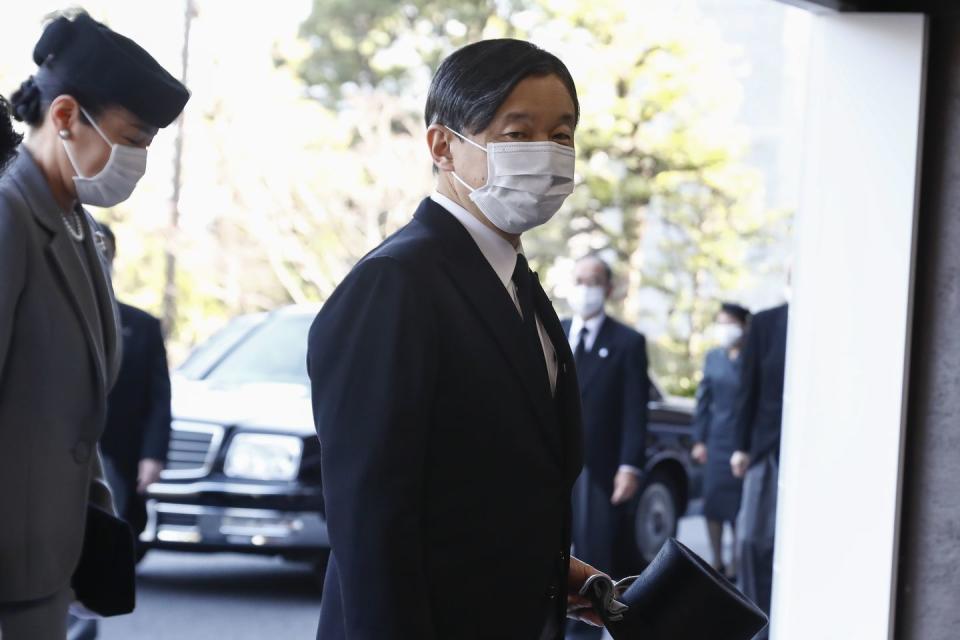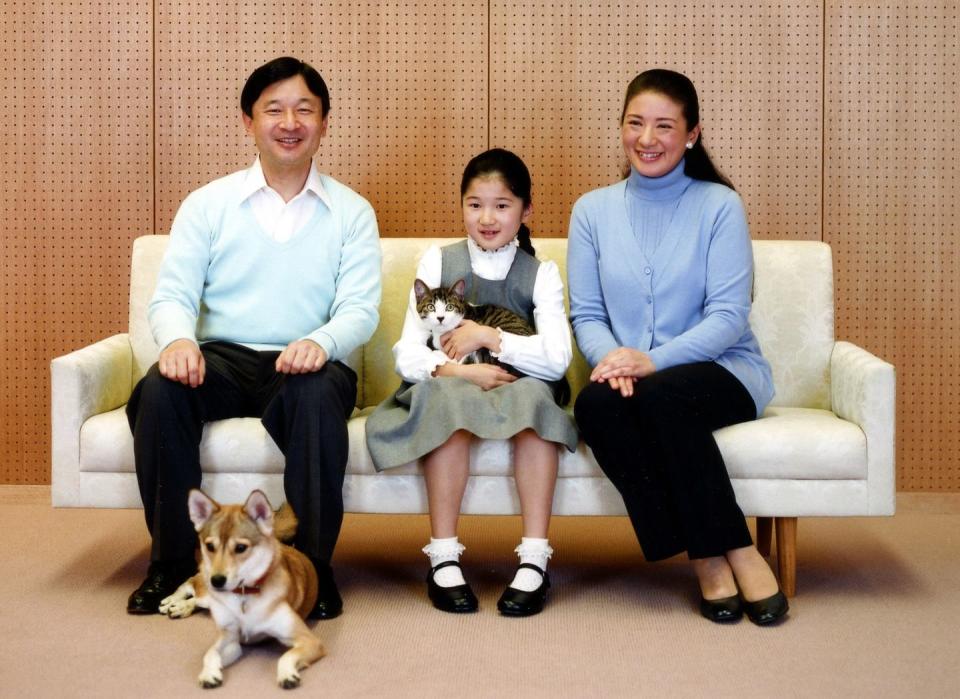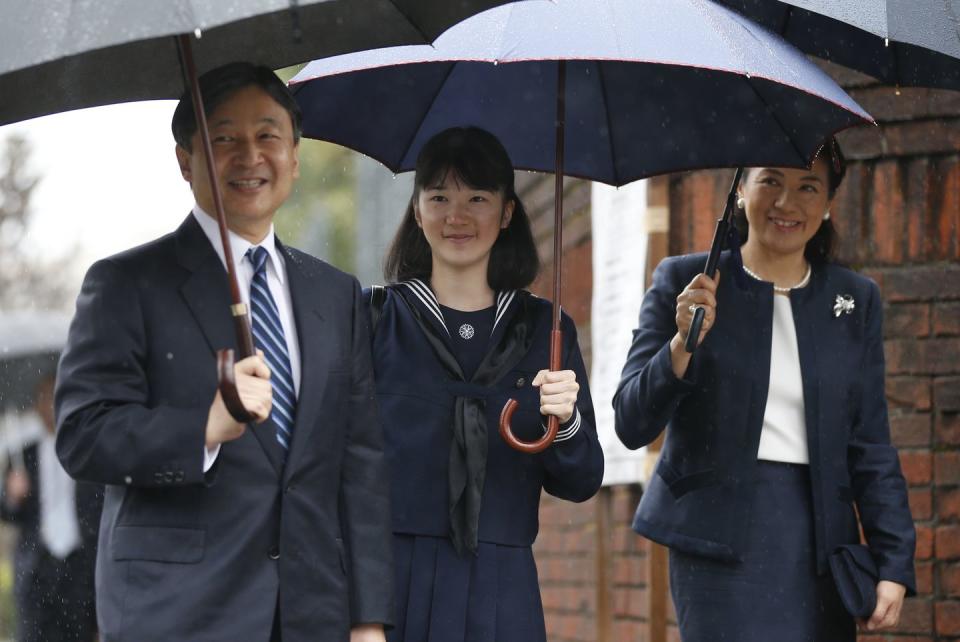Japan's Emperor Naruhito Opens the Tokyo Olympic Games

- Oops!Something went wrong.Please try again later.
“Hearst Magazines and Verizon Media may earn commission or revenue on some items through the links below.”
Of the international royal families, most Americans are probably most familiar with the Windsors—Queen Elizabeth, Prince Charles, Prince William, and so on. But, with this year's summer Olympic Games upon us, a different group of royals may capture public attention. Japan's own royal family is led by Emperor Naruhito, the 126th Emperor to ascend to Japan’s Chrysanthemum Throne.
Emperor Naruhito is set to, per tradition, kick off the Olympic Games on Friday July 23. The Japan Times reports that Naruhito is likely to both attend the opening ceremony of the Olympics and declare the start of the games. Naruhito is the third emperor to be the Games' honorary patron and the first to assume it for both the Olympics and Paralympics.
In light of Naruhito's upcoming event, here's everything you need to know about the Japanese emperor.
He is “extremely worried” about the spread of Covid, in light of the Olympic Games.
Last month, per the Associated Press, a palace official said Naruhito was “extremely worried” that the Tokyo Olympics and Paralympics could increase the spread of COVID-19.
“His majesty is extremely worried about the current situation of the COVID-19 infections,” Yasuhiko Nishimura, grand steward of the Imperial Household Agency, said at a news conference. “While there are voices of unease among the public, I believe (the emperor) is concerned that holding the Olympics and Paralympics ... may lead to the expansion of the infections.”

Per The New York Times, cases are indeed increasing in the nation—daily counts have exceeded 1,000 for several days for the first time since mid-May. Tokyo is currently under a state of emergency.
Naruhito ascended to the throne in May 2019.
Naruhito's father, then-Emperor Akihito, abdicated the throne in April 2019, after which Naruhito became emperor. Akihito, who is now 87 year-old, was the first emperor to abdicate the Japanese throne in 200 years. Akihito hinted at the decision to abdicate in 2016, where, in his second ever televised address, the emperor discussed his declining health and that it was becoming difficult to conduct duties as head of state. At the time, there was no process for abdication.
In 2017, the Japanese legislature, the Diet, enacted a law that would allow Akihito to abdicate and pass down the throne to Naruhito. Though Naruhito became emperor in May, he held a centuries-old ceremony in October 2019, where he formally assumed the throne.

“I pledge hereby that I shall act according to the Constitution and fulfill my responsibility as the symbol of the State and of the unity of the people of Japan, while always wishing for the happiness of the people and the peace of the world, turning my thoughts to the people and standing by them,” Naruhito said, per CNN.
“I sincerely hope that our country, through our people’s wisdom and unceasing efforts, achieves further development and contributes to the friendship and peace of the international community and the welfare and prosperity of humankind.”
He is married to Empress Masako and has one daughter, Princess Aiko.
Emperor Naruhito married Masako Owada in June 1993, in a ceremony broadcast around the world. Prior to her marriage, Empress Masako was a commoner who worked as diplomat in the Japanese government’s Ministry of Foreign Affairs, after attending both Harvard and Oxford. Reportedly, Masako was hesitant to marry Naruhito, as she did not want to give up her career. However, the pair eventually wed and had their daughter, Princess Aiko, in 2001.
The Japanese line of succession still does not accommodate female heirs, so after Naruhito abdicates or passes away, the throne will go to Prince Hisahito, the son of Prince Akishino, Naruhito’s younger brother.

Naruhito attended Oxford University and wrote a memoir about his time there.
After growing up with his two younger siblings and parents in Tokyo’s moat-protected Imperial Palace, Naruhito left Japan to study abroad. He became the first Japanese royal to study overseas, spending two years attending Merton College at Oxford University. He wrote a book about his time at the famed institution, entitled, The Thames and I, a reference to the river that runs through Oxford.

Naruhito's emperor role is purely symbolic.
Though Japan's royal family is still quite visible, they no longer have any governing power. Believed to be one of the oldest monarchies in the world, the Japanese royals were stripped of their political power after World War II. Then, the new Japanese constitution made the Japanese imperial tradition symbolic in nature. The Japanese royals now have roles similar to the British royal family.

You Might Also Like

